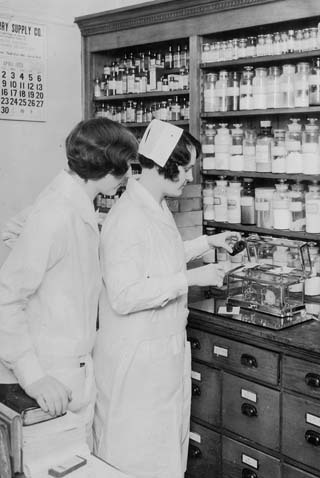Opening April 11 at the Washington State History Museum, “Nurses At Your Service: A Century of Caring” uncovers a century’s development of nursing in Washington state. Rare documents, medical equipment and photographs tell how the field has advanced since nurses began registering in the state.
On display through July 5, visitors learn how war, technology, science and compassion have drastically changed the way patients receive care. The nursing centennial celebrates the first nurses’ examining board (now called the Nursing Care Quality Assurance Commission), which established laws in 1909 requiring nurses in Washington to meet education requirements, pass an examination and apply to be a registered nurse. Just 10 years after Washington became a state, Legislature passed the first Nurse Practice Act, and has held nurses in Washington to the highest standards ever since.
Guests will be able to view an early edition of a Harborview Nurses Handbook, a medical publication used by nurses to learn surgery, anatomy, symptomatology and diagnosis. Additionally, guests will learn stories of Washington nurses who served in France during World War One and see Florence Nightingale’s notes on nursing.
Guests will also see vintage nursing uniforms, early 1900s healthcare equipment, historic photographs such as the first graduating nursing class from Tacoma General Hospital, and an Asahel Curtis glass negative plates of nurses at the first Children’s Orthopedic Hospital and Seattle General Hospital (now where the Fred Hutchison Cancer Center, Seattle, is located).
Nurses will get into the exhibit for free on April 11, with valid ID.
The event is organized by the Washington State History Museum and the Washington State Nursing Centennial Consortium.
On April 15, the museum will host a free lecture at 4:30 p.m. at the University of Washington-Tacoma, William W. Philip Hall entitled “Perspectives on the History of Washington State Nursing.” Marjorie DesRosier, RN, PhD, will address 100 years of professional nursing in Washington state.
For more information, visit http://www.wshs.org/ .






